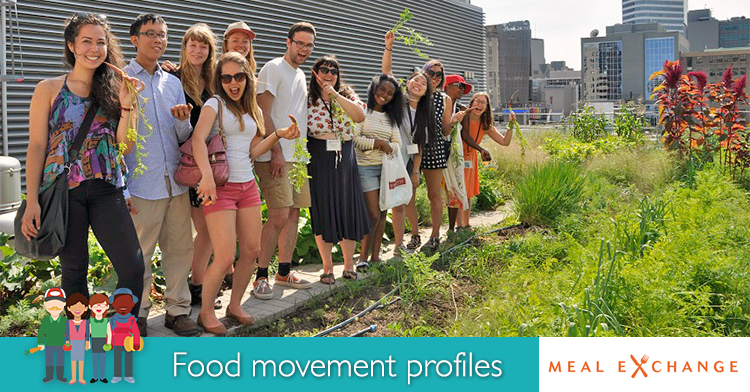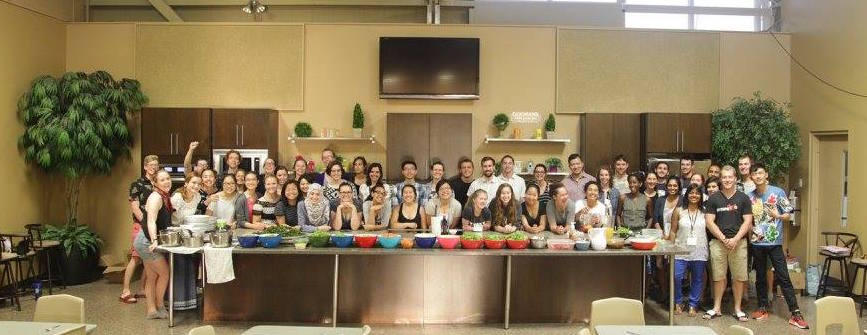Great Food Organisations We Love to Support : Meal Exchange

Interview conducted by Rebecca Seltzer - local Montrealer studying Global Food Security at McGill University
Food Secure Canada (FSC): Tell us about Meal Exchange’s mission and history.
Sarah Archibald: Meal Exchange’s mission is to engage, educate, and mobilize youth to work with their communities to develop just and sustainable food systems.
In 1993, Rahul Raj, at the time studying at Laurier University, was passionate about how students like him could use their resources,energy and time to meaningfully connect and contribute to communities through food. He created ‘Skip A Meal’, a program wherein students could take their extra food meal points at the end of the year and donate them to purchase food and goods for local food agencies.This was the birth of Meal Exchange.
Although the organization has changed and evolved over nearly 25 years, what remains consistent is the belief that young people have wonderful ideas, and can be instrumental in transforming food systems.
Programs currently offered by Meal Exchange strive to provide students with knowledge, resources, connections, and support to work with their campuses and communities to increase reliable access to a sufficient quantity of affordable, nutritious food for all.
FSC: We hear a lot about healthy and sustainable food nowadays. What’s Meal Exchange’s definition of “good food”?
Sarah: Meal Exchange would consider good food to be ecologically sound (low carbon footprint, sustainable agriculture), socially just (accessible, humane treatment of all workers, temporary displacement of foreign ones), and healthy, to nourish people and the planet.

FSC: Can you describe how Meal Exchange helps to build the food movement?
Sarah: Meal Exchange is both inspired and informed by peer organizations such as FSC, by young people, and their ideas. We strive to be curious and to be driven by questions that are meaningful to us and our mission statement. We like to test new ideas on campuses because we think that they are ideal leverage points for change (e.g. new model for waste reduction).
The idea is that if students can see the change in their own circles and communities, they can adapt to it and grow from it and share it. If students become increasingly motivated to pioneer communities that are sustainable, socially just and healthy, then we can share that model with other organizations, and eventually at the international level.
FSC: Meal Exchange is an organisational member of Food Secure Canada. We work together for deep and lasting change in our food system. How does Meal Exchange envision a new food policy?
Sarah: What’s powerful about the work done by Meal Exchange is that our rallying force is students. Essentially all of them are engaging with politics for the first time and are learning how they can make a difference as a new voter and how their ideals can encourage systemic change to achieve a goal shared by many like-minded people.
Our three main focal points for a national food policy would be northern and Indigenous food security, emerging farmers and the new age of agriculture, and guaranteed annual income with support for students, especially those living on campus.
FSC: How can we get involved with Meal Exchange?
Sarah: Any students looking to get involved should look at our website (mealexchange.com) to see the variety of programs they can get involved in, including positions and programs available to graduates of food-related degrees. For anyone else looking to get involved, Meal Exchange is always looking for advisors to think through successful projects and to share student ideas on a variety of platforms.
We have a variety of exciting opportunities coming up and would suggest that folks sign up to our newsletter to stay in touch!

- Log in to post comments

